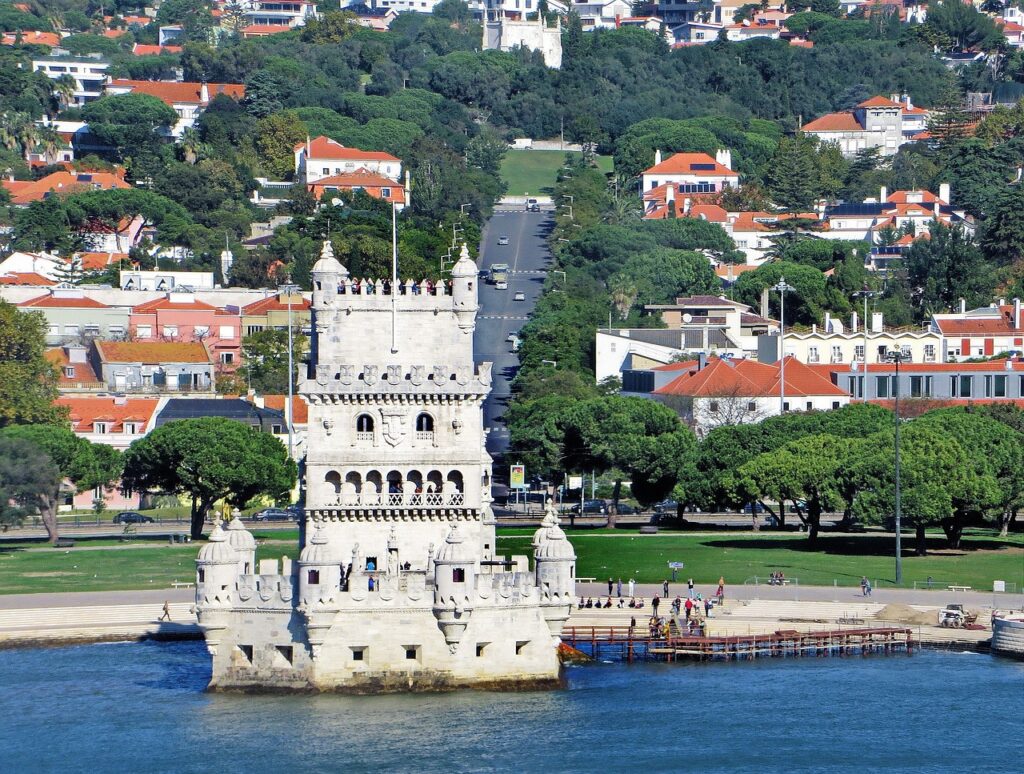Hello, adventurers!
Planning a trip from the UK to Portugal? You’re in for a treat! Portugal offers a blend of stunning landscapes, historic cities, delicious cuisine, and a warm Mediterranean climate. Whether you’re drawn to the vibrant streets of Lisbon, the stunning beaches of the Algarve, or the picturesque Douro Valley, getting there from the UK is straightforward and offers several travel options. Here’s a comprehensive guide to help you plan your journey.
Essential Travel Requirements for British Citizens Visiting Portugal:
1. Passport and Identification
Passport:
- Your passport must be valid for at least three months beyond your planned departure date from Portugal. Ensure that your passport is in good condition and has enough blank pages for stamps.
ID:
- While not required for travel, carrying an additional form of ID, such as a driver’s license, can be useful for various situations like car rentals or verifying identity at hotels.
2. Visa Requirements
Tourist Visa:
- As a British citizen, you do not need a visa for short stays in Portugal (up to 90 days within a 180-day period) for tourism, business, or family visits.
Longer Stays:
- If you plan to stay longer than 90 days, you will need to apply for a visa or residency permit. It’s best to contact the Portuguese consulate or embassy for specific requirements and procedures.
3. Health and Travel Insurance
Travel Insurance:
- Travel insurance is strongly recommended. It should cover medical expenses, trip cancellations, lost luggage, and other unexpected events. Make sure your policy includes coverage for COVID-19-related issues.
European Health Insurance Card (EHIC):
- The EHIC is still valid for British citizens, allowing you to access state-provided healthcare in Portugal at a reduced cost or sometimes for free. Ensure your EHIC is up to date, or apply for the new UK Global Health Insurance Card (GHIC).
COVID-19 Requirements:
- Check the latest travel advisories and health regulations related to COVID-19. This includes vaccination requirements, testing, quarantine rules, and health declaration forms. Regulations can change frequently, so stay updated through official sources like the UK government travel advice website.
4. Customs and Import Regulations
Goods:
- When traveling from the UK to Portugal, you can bring goods for personal use without paying additional duty or tax, but there are limits. For example, there are restrictions on the quantity of tobacco and alcohol you can bring.
Prohibited Items:
- Some items are prohibited or restricted, such as certain food products, plants, and animals. Check the Portuguese customs regulations to ensure compliance.
5. Driving in Portugal
Driving License:
- British citizens can use their UK driving license in Portugal without the need for an International Driving Permit (IDP).
Car Insurance:
- If you’re planning to drive, ensure your car insurance covers you in Portugal. Many UK policies offer European coverage, but it’s wise to confirm this with your insurer.
Road Rules:
- Familiarize yourself with Portuguese road rules and regulations, such as speed limits, seatbelt laws, and drink-driving limits. Driving is on the right-hand side of the road in Portugal.
6. Money and Currency
Currency:
- The currency in Portugal is the Euro (€). It’s a good idea to have some cash on hand for small purchases, although credit and debit cards are widely accepted.
Banking:
- Inform your bank of your travel plans to avoid any issues with using your cards abroad. ATMs are widely available, and many offer instructions in English.
7. Emergency Contacts and Useful Information
Emergency Number:
- The emergency number in Portugal is 112. This is the number to call for police, fire, or medical emergencies.
Embassy:
- Note the contact details of the British Embassy in Lisbon. They can assist with lost passports, legal issues, and other emergencies:
- Address: Rua de São Bernardo 33, 1249-082 Lisboa, Portugal
- Phone: +351 21 392 4000
Local Laws and Customs:
- Respect local customs and laws. This includes understanding etiquette around dining, tipping, and social interactions. Portuguese people are known for their hospitality, and showing respect for their culture will enhance your travel experience.
Flying from the UK to Portugal
Flying is the quickest and most convenient way to travel from the UK to Portugal. Here’s what you need to know:
Airports:
- UK Departure Airports: London Heathrow (LHR), London Gatwick (LGW), Manchester (MAN), Birmingham (BHX), and more.
- Portuguese Arrival Airports: Lisbon Humberto Delgado Airport (LIS), Porto Francisco Sá Carneiro Airport (OPO), Faro Airport (FAO).
Airlines:
- Popular airlines include British Airways, Ryanair, easyJet, TAP Air Portugal, and Wizz Air. They offer frequent direct flights to major Portuguese cities.
Flight Duration:
- London to Lisbon: Approximately 2 hours 30 minutes
- London to Porto: Approximately 2 hours 20 minutes
- London to Faro: Approximately 2 hours 45 minutes
Tips:
- Book flights in advance for the best deals.
- Consider flexible dates to find cheaper options.
- Check the airline’s baggage policy to avoid extra fees.
Traveling by Train and Ferry
If you prefer a more scenic and leisurely journey, combining train and ferry travel is a fantastic option:
Step 1: Train from London to Paris
- Take the Eurostar from London St Pancras International to Paris Gare du Nord. The journey takes about 2 hours 20 minutes.
Step 2: Train from Paris to Portugal
- From Paris, you can take a high-speed TGV train to Hendaye on the French-Spanish border, then switch to a Spanish Renfe train to Lisbon or Porto. The overall journey takes around 18-20 hours, so consider an overnight stay in a city like Madrid.
Ferry Option:
- Alternatively, take a ferry from the UK to Spain and continue by train or car. Ferries run from Portsmouth or Plymouth to Santander or Bilbao. From there, you can drive or take a train to Portugal.
Tips:
- Book tickets well in advance, especially during peak travel seasons.
- Consider a Eurail pass if you plan to explore more of Europe by train.
Driving from the UK to Portugal
For those who love road trips, driving from the UK to Portugal offers a chance to see more of Europe:
Route:
- From the UK, take the Eurotunnel or a ferry to Calais, France.
- Drive through France and Spain to Portugal. A common route is Calais – Bordeaux – San Sebastián – Lisbon.
Duration:
- The drive from Calais to Lisbon is approximately 20-24 hours, depending on stops and overnight stays.
Tips:
- Plan your route and overnight stops in advance.
- Ensure your vehicle is in good condition and you have the necessary insurance and documentation.
- Familiarize yourself with driving regulations in each country you pass through.
Bus Travel
Bus travel is the most economical but also the longest option:
Providers:
- Companies like Eurolines and FlixBus offer routes from various UK cities to Portugal.
Duration:
- The journey can take 30-40 hours, depending on the route and stops.
Tips:
- Bring snacks, entertainment, and travel pillows for comfort.
- Be prepared for multiple transfers and long stops.
Travel Tips for Portugal
- Currency: The currency in Portugal is the Euro (€). Ensure you have some cash for small purchases, although cards are widely accepted.
- Language: Portuguese is the official language. Learning a few basic phrases can be helpful and appreciated.
- Transport: Portugal has a reliable public transport system, including trains, buses, and trams. Renting a car is also a good option for exploring the countryside.
Traveling from the UK to Portugal offers various options to suit different preferences and budgets. Whether you fly directly for convenience or choose a more adventurous route by train, ferry, or car, the journey to this beautiful country will be part of the memorable experience. Enjoy your trip, and bom viagem (safe travels)!


